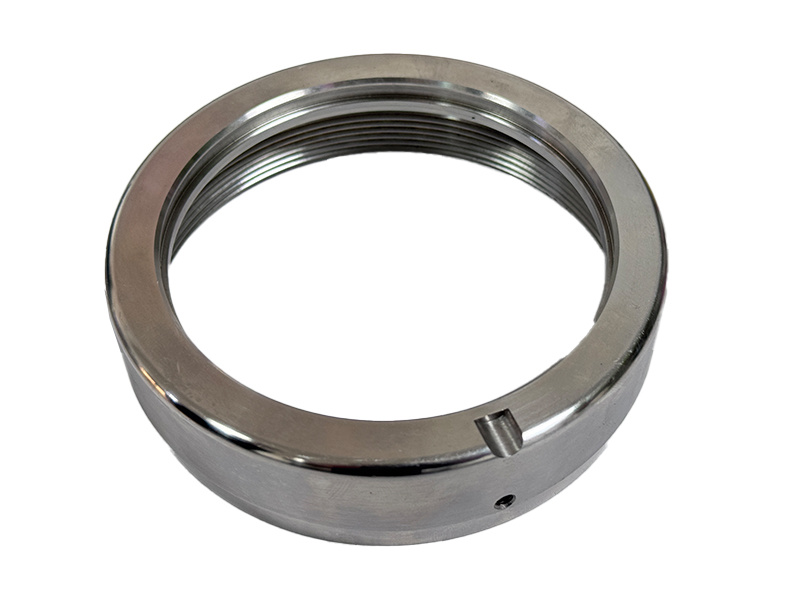May 27,2025
Unlocking the Benefits of Fancy CNC Precision Services in Modern Manufacturing
CNC precision services offer transformative benefits that can redefine the manufacturing process. From enhanced accuracy and increased efficiency to cost-effectiveness and diverse applications, CNC technology stands as a cornerstone of modern manufacturing excellence
What is CNC Technology?
CNC technology refers to the automation of machine tools through the use of computers executing pre-programmed sequences of machine control commands. This technology allows for greater accuracy, repeatability, and flexibility in the manufacturing process. CNC machines can include milling machines, lathes, routers, and grinders, all of which can produce complex and intricate parts with minimal human intervention.
The significance of CNC lies in its ability to translate precise designs into actual products with a level of detail that manual processes simply cannot achieve. As manufacturers look to **streamline operations and improve quality**, CNC technology has become a cornerstone of modern manufacturing.
The Comprehensive Benefits of CNC Precision Services
The integration of CNC precision services into manufacturing processes offers numerous benefits that can significantly enhance overall operational efficiency. Below, we outline key advantages:

Enhanced Accuracy and Precision
One of the primary advantages of CNC technology is its ability to produce parts with exceptional accuracy. CNC machines operate based on intricate programming codes that ensure each cut and movement is executed with precision. This level of accuracy minimizes errors and reduces the need for rework, ultimately resulting in higher-quality products.
For instance, components designed for sensitive applications, such as in the aerospace or healthcare sectors, require precision that can only be achieved through CNC machining. Accuracy not only boosts product quality but also strengthens customer trust and satisfaction.
Increased Efficiency and Speed
CNC machines are designed for speed and efficiency. Unlike manual machining, CNC operations can run continuously without the need for breaks. The automation inherent in CNC processes allows for rapid production rates, reducing lead times and increasing throughput.
Additionally, the ability to create complex geometries and features in a single setup reduces the number of machine setups required for production. This streamlined approach not only saves time but also optimizes resource allocation within manufacturing facilities.
Cost-Effectiveness in Production
While the initial investment in CNC machinery may be significant, the long-term savings realized through efficiency and reduced waste make CNC an economically viable option for many manufacturers. The precision of CNC machining minimizes material waste, as parts are produced to exact specifications, leading to decreased costs for raw materials.
Moreover, the ability to produce high-quality parts in less time contributes to lower labor costs and improved profit margins. As manufacturers aim to remain competitive, the cost-effectiveness of CNC precision services becomes an essential factor in decision-making.
Diverse Applications of CNC Precision Services
CNC technology is versatile and can be applied across various industries, each benefiting uniquely from its capabilities. Here are some key sectors where CNC precision services are making a significant impact:
CNC in the Automotive Industry
In the automotive industry, CNC machining plays a pivotal role in producing components such as engine parts, chassis, and drive shafts. The **high precision** required for these critical components ensures vehicle safety and performance. CNC services also enable rapid prototyping, allowing manufacturers to test designs before mass production.
CNC in the Aerospace Sector
The aerospace sector demands the highest standards of precision and reliability, making CNC technology indispensable. Components such as turbine blades and airframe structures require intricate designs and materials that can withstand extreme conditions. CNC machining allows for the production of lightweight yet durable components that meet stringent industry regulations.
CNC in Medical Applications
In the medical field, CNC precision services are used to manufacture surgical instruments, implants, and prosthetics. These products must meet rigorous biocompatibility standards and require meticulous engineering. CNC technology facilitates the production of custom solutions tailored to individual patient needs, enhancing the quality of care provided.
Challenges and Solutions in Implementing CNC Technology
Despite the numerous advantages of CNC precision services, manufacturers may encounter challenges when integrating this technology. Some common obstacles include high initial costs, the need for skilled operators, and maintenance of complex systems.
To address these challenges, manufacturers can adopt various strategies:
1. **Invest in Training**: Providing comprehensive training for operators ensures that they can proficiently utilize CNC machines, thus maximizing efficiency and minimizing errors.
2. **Gradual Implementation**: Rather than a complete overhaul, manufacturers can gradually introduce CNC technology into their operations, allowing time to adapt and learn.
3. **Regular Maintenance**: Implementing a robust maintenance schedule will help prevent downtime, ensuring machines operate at peak performance.
The Future of CNC Precision Services in Manufacturing
As technology continues to evolve, so will CNC precision services. The integration of **artificial intelligence (AI)** and the **Internet of Things (IoT)** into CNC machining is set to revolutionize the industry. These advancements will allow for real-time monitoring and data analysis, enabling predictive maintenance and enhancing production efficiency.
Additionally, the trend towards **customization** and **personalization** in manufacturing will drive demand for CNC services that can produce unique, tailored products quickly and efficiently. Manufacturers who embrace these innovations will be well-positioned to lead in the rapidly changing landscape of modern manufacturing.
Conclusion
CNC precision services offer transformative benefits that can redefine the manufacturing process. From enhanced accuracy and increased efficiency to cost-effectiveness and diverse applications, CNC technology stands as a cornerstone of modern manufacturing excellence. As industries continue to evolve, adopting CNC technology will be crucial for manufacturers seeking to maintain a competitive edge while delivering high-quality products.
Previous: Unlocking the Future of Advanced Non-Ferrous Machining in Manufacturing
Next: The Art and Science of Durable Complex Geometry Machining in Manufacturing
Latest News









